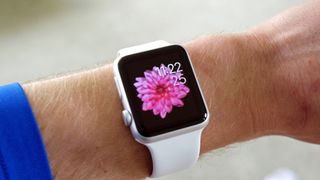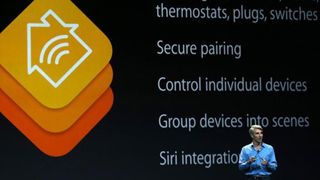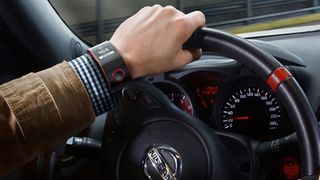Despite plenty of hype, the smartwatch bandwagon remains firmly in second gear for the time being - and that's to be expected, as any new category of gadget needs time to bed in and find its feet (don't forget that even the iPhone got off to a relatively slow start).
That said, we've got some ideas about how smartwatches can be better - here are some of the innovations we want to see from the device makers in 2016 and beyond. In a lot of cases, manufacturers are already moving towards these goals, which is encouraging to see.
More on watches, smart or otherwise:
- Best smartwatch 2016: Apple Watch vs Android Wear vs Pebble
- T3's best watches 2016: men's chronographs, chronometers, and stylish dress watches
- Best luxury watch: timepieces from the most prestigious brands
1. Improved, standalone apps

Right now smartwatches are very much extensions of our smartphones, which is fine if you want to check up on incoming text messages or see the weather on your wrist. But for a lot of people, just sticking with the smartphone is a more convenient and less expensive option. Only when watches get compelling, standalone apps of their own will there be a good reason for the majority to buy them.
To give the smartwatch makers their due, the devices are moving in this direction: both Android Wear and WatchOS have been adding new features to help developers build more sophisticated apps, but we've still got a way to go: the apps we want to see are going to be ones designed specifically for smartwatches, apps that do something useful that you can't really do on a smartphone.
2. Full independence from smartphones

Following on from our first point, smartwatches need to get much better at working without a connected smartphone (again there's movement in this direction but we'd like to see more). If all a watch is going to be is a 'second screen' for a mobile then that's going to be a turn-off for a lot of users out there - particularly those that aren't already used to wearing a watch on their wrists all day.
In some ways this is a hardware limitation, and we expect to see the situation improve as smartwatch components get smaller, more powerful and cheaper. Some watches already can do tasks like navigation, music playback and web browsing without a smartphone wirelessly attached, and if the likes of Samsung and Apple can go further in this direction then we might be tempted into a purchase.
3. Intelligent software

With Siri, Google Now and Cortana, the major smartphone OSes are moving towards a more intelligent, personalised way of working - something that's even more essential on a tiny smartwatch screen. The way that apps, updates and news are brought to the surface on screen should be slick and intuitive: ideally, user interaction with the watch (whether voice or finger tap) should be kept down to a minimum.
One of the key advantages of a smartwatch is that it's easier to glance at than a smartphone, especially if you're on the move or busy doing something else, so key information should appear as if by magic. To be fair to Google this is the kind of trick that Google Now is already pulling off to some extent, but if we're looking at areas that smartwatches can improve in, this is definitely one of them.
4. Integration with other devices

We want to do more than check the time with our smartwatch: we want to use it to turn the lights off, open up the garage door, start the microwave and check in on the baby monitor. The likes of Apple and Google have made some progress in this area, but right now smart home integration is a bit of a mess: most users aren't going to take advantage of these features unless they're very simple to use.
We've already seen some neat ideas tested out with smartwatches - opening car and hotel doors, making mobile payments, activating camera shutter buttons remotely - but they all require specific hardware and apps and often a rather convoluted setup process. Once these sorts of features are common across the board (no matter what kind of watch you have) then those smartwatch sales figures are going to start climbing.
5. Superior sensors

What other advantage does a smartwatch have over a smartphone? It's always on you, and always connected to your skin. While today's devices can count steps and have a half-hearted attempt at tracking your sleep too, it would be great to see more advanced sensors that monitor our well-being more comprehensively, and even keep an eye on the environment around us at the same time.
Of course manufacturers are limited by the hardware that's available, but imagine a smartwatch that can warn you when you're overdoing it at the gym, or tell you when it's about to rain, or work out what kind of mood you're in just from your actions. And while we're at it, how about using the device as a secure login system that works everywhere from email clients to cash machines as well?
- Find out why smartwatches are going to be the gadgets of 2016



